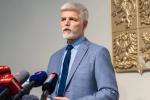Seven European nations will unite on a project to respond to global changes in modern society. Photo credit: Freepik
Brno, Aug. 23 (BD) – Scientists from Brno’s Mendel University will participate in a European project to respond to major urban changes in society. Most of the population is moving to large cities, raising the question of how to feed them. The project, called Hungry EcoCities, will last nearly four years and has a budget of EUR 2.8 million.
The research is being conducted across all the different fields concerning nutrition. It will involve farmers and agricultural experts working closely with artists, designers and scientists in the fields of computer science and artificial intelligence, food science and biotechnology, to come up with new ideas for a future food system for all.
One of the goals of the project is to bring people closer to digital technologies, which are increasingly being applied to agriculture and food production. “Together with our colleagues, we will seek to increase trust and acceptance of digital technologies in society through art and the development of digital technology, preserving and recognizing human values and thus enabling social inclusion and environmentally friendly innovation,” said Dalibor Húska of the Institute of Chemistry and Biochemistry at Mendel University.
One way forward is to introduce digital technologies into the agricultural sector to address social, commercial and sustainability challenges. Another way is to develop new products and services in-line with a people-centred approach, innovation and sustainability goals through dedicated collaboration between the fields of art, industry and R&D. The entire project is inspired by Carolyn Steele’s 2008 book, “Hungry City: How Food Shapes Our Lives”, which addresses the fundamental question of the contemporary civilised world, including socio-economic, cultural and, most importantly, agronomic impacts on sustainable agriculture.
The scientific consortium consists of eight scientific institutions from seven countries, including experts from the Czech Republic. The Department of Chemistry and Biochemistry at MENDELU is in charge of designing, consulting and testing the virtual laboratory. Experts from seven countries, including MENDELU, will consult with artists and connect design to functionality. “We will design and build a digital environment that will connect with existing platforms to provide a framework for the usability of artificial intelligence, which will allow us to manage the whole process and propose possible solutions and improvements,” Húska added.






